KHIRKEE VOICE






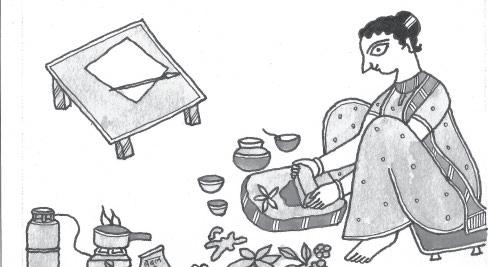

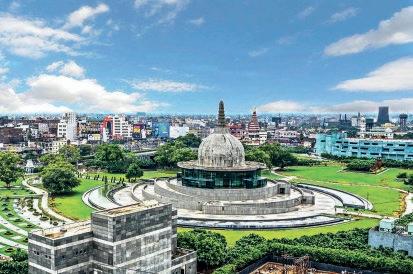
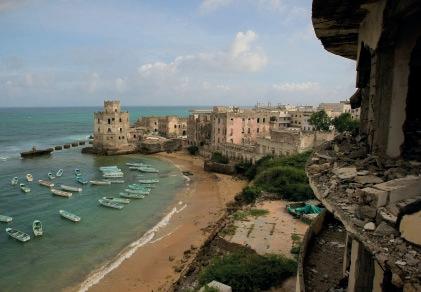
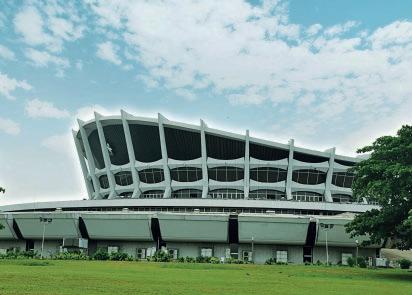

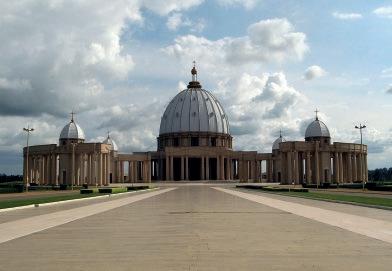

Khirkee Village has witnessed the COVID-19 pandemic like many other urban villages in the city. There was loss of life in many streets and people also had to face unprecedented financial trouble. After the announcement of the first lock down of 2020, life in Khirkee came to a standstill. The artisans working in the textile factories there had to leave this village amidst uncertainty and go back to their native villages. Many people lost their jobs. The local residents imprisoned themselves within four walls and would only come out of the house to get the essentials. In the evening, people would often be seen walking on their terraces or peacefully looking at the empty streets and sky in the silence of the epidemic. Talking about the experiences of Covid-19 and the lock-down, Ashwani, a local poet and businessman, says, “Many of my business friends have adapted themselves during this difficult period. Like a friend of mine did when the sweets & confectionery business work came to a standstill, started groceries and general store business. Also survival became so important that we used to find reason to laugh even in this trouble.”
A pandit ji has a tea stall opposite to his. When customers were scarce in the lock down, then Miyan Saheb, who was running the hotel next
door, came forward to help Pandit ji. He would send fruits, vegetables and essential items to Pandit Ji and many others every day. Ashwani believes that sharing sorrow and pain along with help may not reduce all the problems but it does give courage.
On the other hand, many people faced much more difficult times due to the loss of their loved ones in this epidemic. Mehar (name changed), 22, from the Afghan community of Khirkee, says, “I lost my father in the Pandemic. Our family was going through extreme distress and financial trouble. Even going out for ration was difficult. There was no work anywhere due to lock down and the spread of Covid-19 virus. We spent the entire lock down in depression and loneliness. Due to the closure of the Jamaat, there was no source of spirituality and peace of mind as well. When the lock down was lifted, there was some hope. I am happy that I found a new job.”
Mehar’s experience is similar to the experience of countless other people in and around Khirkee Village. Stories of courage and resilience are heard in every street. After the relaxation of the first lock down, as life started coming back on track, the second wave struck. This time the situation was more dire. Those who came back to the village for work, the period of uncertainty started haunting them again. People who had the resources were ready to help through NGO’s, in-
stitutions and as individuals. Most people in the neighbourhood were going through a period of great concern for the survival and safety of themselves and their families. Ravi, 23, who lives in Khirkee village, says, “During Covid-19 crisis I had to go through a lot of financial problems. I myself contracted coronavirus and had mild symptoms. I home quarantined and treated and took care of myself on my own. My entire family lives in my native village. So I am a little relieved for them. I have a government job on contract. During the lockdown, it was very difficult as the organisation held back salary for a few months. Later the issue was resolved and I got my paycheck with a cut. If such a situation comes again, we are more prepared than ever.”
Ravi writes poems in his spare time. The sorrows of marginalised people are visible in his poetry from this time of crisis. Pandemic may have secretly changed and affected people’s attitudes. People have become more aware of life because of the collective loss and grief. In this era of loneliness, we have come closer to our loved ones. People have become more aware and started sharing their views regarding mental health. Perhaps we have become more sensitive about nature and its behaviour. At the same time, this difficult time has collectively made us realise that life is valuable and that a longing for survival alone breeds unprecedented courage. Ra-
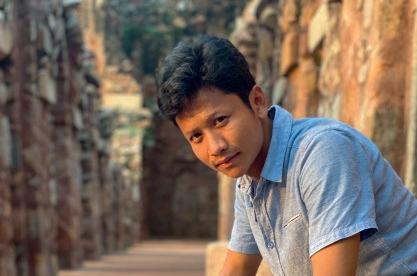
vi’s friend Akshay says that “I got lucky in the lock-down that I got a job during the period of financial difficulties.” In his daily routine, he had to sit at home. In the evening, he used to go out of the house only to take a walk on the terrace. Going out in the street was out of the question for fear of getting beaten up by the police.
Akshay stays with his mother in Panchsheel Park which is walking distance from Khirkee and he raps during free time and releases videos on YouTube. Akshay’s mother Pula Devi, 47 says, “Kahin aana jaana hi nahi tha. Our neighbors’ entire family in the house in front was Corona positive. We were scared. But we took all precautions. Thankfully no one in our family was infected. There was a problem finding work anywhere. Now the new strain is coming, so there is fear again.”
There is a little more movement in the Khirkee streets these days. Early in the morning you will notice children going to school. Jha ji’s tea shop is not as crowded as before, but you can see the gossipping artisans and local people visiting at different intervals. Vegetable and fruit sellers are back in their positions. Simultaneously, cases of Omicron are increasing in Delhi as recorded at the end of December 2021. Fear of lock down is inevitable. But after talking to the people of Khirkee, they come across as more courageous and ready than before.
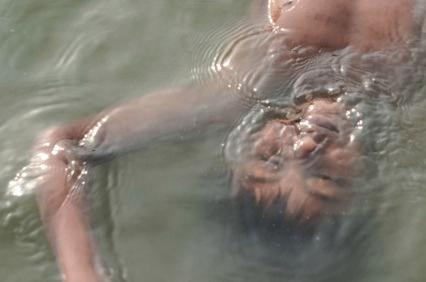
Ekta Chauhan celebrates little victories in gender parity within her family’s doemstic space, even as she laments these unchanging attitudes still deeply rooted in our society
On a rainy March morning, after I finished my morning chores and study session, I called home. Home was in New Delhi, thousands of kilometres away from Germany (where I now study). Delhi was under a brutal lockdown imposed to contain the COVID-19 pandemic. While in Germany we were still allowed to take short walks, exercise and meet friends in open spaces, Delhi’s roads and parks were deserted. I called almost every day not only to inquire about everyone’s health but also to get my daily dose of comical drama that was unfolding due to the (forced) intimacy my family was experiencing during the lockdown. Schools and offices were shut, the housekeeper had gone back to her village, public spaces were out of the equation, and the great Indian family was locked up in their homes, rediscovering and re-bonding with each other.
My mother was enjoying the lockdown because she had the pleasure of her husband’s and son’s company through the day. My father was discovering how many calories are burnt while mopping
our three bedroom home since his gym had closed down. I was playing my usual role of “jubaan bohot chalti hai” daughter and unpacking their situation through a Feminist Lens over video calls. During one of our calls, as my dad had just finished washing the balcony, he said “ek baat toh hai, ghar ka kaam hai toh mushkil. Aapki mummy poora din (kaam mein) lagi reht hai”. The lockdown may or may not have addressed the pandemic, but my family was starting to (finally!) recognise the labourings of my mother, and that was worthy of celebration on national television for me.
As in most Indian upper middle-class households, social and economic activities and spaces are gendered in my family. The same holds for my extended family in Khirkee Village. The Men work go out to work in offices or run family business. After their 8-9 hour shift, they meet in public spaces for a smoke or a game of cards. Rest of the day is spent eating, chatting, watching TV; basically enjoying leisure time as a worker in this capitalist world. They are applauded (sometimes worshipped) for earn-
ing the daily bread and facing the harsh world (the office politics, the congested roads of Delhi, the pollution!). They are not be burdened with “mundane” and “faltu” domestic issues; that realm is to be managed by the women of the house. Did the children eat? Are the clothes washed and ironed? Have all the 20 ingredients of his favourite dish been bought and cooked to perfection? Does the bathroom have soap and shampoo? Are the elderly taken care of? Women of Khirkee Village run a tight shift of 15-16 hours a day that starts before anyone else in the family wakes up, and ends after everyone else has gone to sleep. Even the fortunate ones who can afford help, must still perform managerial tasks. The ones who have a job, run a double shift- managing the office from 9-5, followed by hours of performing their feminine “duty” of making sure everyone in the family is happy and comfortable. The burden of Unpaid Care Labour falls mostly on women in India. Standard measures of economic activity (such as GDP) are unable to capture this. If I
Its good to be back after a two-year hiatus- although it feels strangely longer and shorter simultaneously. Through this indeterminate time of unbearable loss, constant uncertainty, and tremendous social unrest, each of us has grappled with the question of how things might change. All of us feel the need for something to change- an intangible, compelling force trying to take us somewhere better, or atleast different. We asked our friends and regular contributors to ponder on this idea of new possibilities in the things they like to do. This new edition of Khirkee Voice is a motley collection of these thoughts and reveries from members of the extended Khirkee community, artists, poets and doers.
The pandemic made all too real some of the dangers of an over industrialized, exploitative world- but things seem to be slipping back into the old norm all too easily. While the long lasting social, economic, and cultural shifts resulting from the pandemic may take some years in becoming discernible, this is perhaps an ideal time for us to reflect on our own little worlds, and how we have chosen to operate differently in them already. Maybe these small changes in our personal lives will cumulatively affect the direction of the collective, or just make our own experience of a crumbling planet slightly more palatable.
In these pages are stories of resilience in the face of adversity, pushing through with personal projects despite the odds, dreams of how things could be, and reveries of lives that have been through a universally strange time of grief, growth, and self-reflection. We discovered an art collective in Madhubani in Bihar, who make Madhubani style paintings of contemporary rural life- their soulful experiences of the lockdown make for one our most gorgeous center spreads. Niranjani Iyer makes a compelling case for amateurs, and the need to celebrate the novice. Steven George takes us on two riveting journeys through the familiar and the strange. Ekta Chauhan relates hilarious tales of domestic gender wars and their slow dismantling during the lockdown. We hear tales from far-flung villages that could not be more different from ours in Khirkee, but in some little ways, are pretty much the same.
As uncertainty looms large again with yet another variant, we invite you to go on some flights of fantasy of your own - to revel in our unbound imagination of a future of new possibilities, collaborations, explorations, and connections- within our close-knit communities, and with the world at large. We take our own fantasy flights on the wings of recurring questions- can there be a world where we revere nature as much as we revere celebrities? Can saving our natural resources ever become as profitable as destroying them? Can cities engender more kindness by being more in tune with nature?
While we ponder these questions, and more, we are excited to restart our journey with Khirkee Voice, and look forward to taking this idea in new directions. We invite our regular readers, contributors, and supporters to reach out to us at khirkeevoice@gmail.com with your suggestions and ideas for contributing to the publication, or to collaborate. We would love to hear from you!
As I sat down reading all my notes, listening to my sound recordings and watching all the videos I made in Africa, I stood numb, numb from the brimming information, the jumble of thoughts in my mind.
Spending 8 months on the road in Africa, every day was filled with new knowledge, meeting exciting people, making new strides with my art, building trust, and ensuring
that we reach Cairo with the limited funds we had- it was a lot!
But I was like a sponge, absorbing it all, hoping to squeeze it all out once back in Delhi.
The transition wasn’t easy. After returning in mid 2019, it took a while to fall back into the stationary routine I had before the Great African Caravan. Slowly, the comic started taking shape - images I had envisioned while on the journey. I wanted to tell our story - 12 artists from various countries, coming
together for an epic road-trip across the African Continent- with a solid route-plan and no funding!
I knew it would be sensational.
I had to start somewhere- and curating the heaps of data I had gathered seemed to me the best way to begin.
I had documented our journey in three ways:
1. In my notebooks
2. Sound recordings in my phone
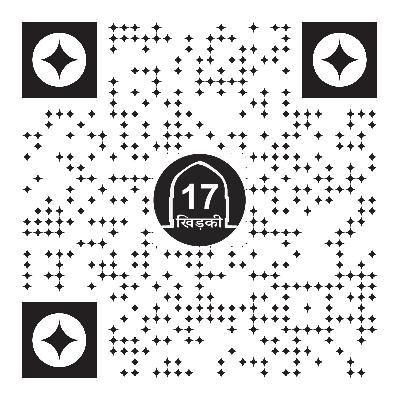
3. Pictures and Videos
The sound recordings from my phone turned out to be the most valuable, helping me construct ideas around our conversations, collaborations and differences on the journey. In about 4-5 months, I had sorted out all the data, and started building my story, and by the end of 2019 I had the first chapter of my comic in my handraw and unedited.
But why am I so adamant about making this comic? I guess cos’ I believe in our story, I believe that there is a world beyond borders that we have created for ourselves. Geographical borders and mental borders.
This comic came from a need to talk about these borders, and all that
have to explain this in Bollywood terms, “Tumahara kaam kaam, aur hamara kaam duty? Bohot na-insafi hai.” According to the 2019 NSS survey, women spend 299 minutes a day on unpaid domestic services while men spend 97 minutes. This varies widely across region, class, and caste. The psychological impact remains unmeasured. The rare man- a unicorn- who chips in by cutting the vegetables, or helping children with their homework, are worshipped; while women who take time out to exercise or just watch a movie with friends, are denounced (and in some cases censored) for being irresponsible, and a bad mother/wife. The long hours dedicated to household work means that women are left with little time to relax. Economists call this “time poverty”; the shortage of time available to devote to purely personal requirements, including leisure and relational activities. Relaxation is a luxury few women can afford.
So here is my post-pandemic utopia: There is a family gathering. Dinner is served on the dining table. Everyone serves themselves (men have finally figured out where the serving ladles are kept!) while discussing the latest gossip and news. Some couples are serving
themselves a third round of drinks, others are putting their children to sleep. Two men get up, gather all the dishes and head towards the kitchen. On being mocked by a boomer uncle for doing “aurto wale kaam”, they smile and say “in our house, we take turns to do the dishes”.
In a post pandemic world, I would still not expect a radical smashing of the patriarchy in my family or in society. The gendering of roles is likely to continue at least for the older generations, but do they have to for my generation? And especially for me? Activism in public spaces seems easier than fighting out the battle in our inter-personal relationships. But if families are the building blocks of society (as we are taught), then this is where it has to start. I imagine a slight dent in the giant ugly boulder of patriarchy; beginning with recognition of women’s care work as work and not “duty”. No more sexist jokes at family gatherings about housewives lazing around enjoying themselves. More men getting off the high horse of “I have a demanding job” and start taking part in household duties as an equal member. Revolution may take some more time, but the dishes should not.
MC Akshay Tashan, star of our own homegrown Hip-Hop crew Khirkee17, raps about his lockdown experience
For now everything is closed there is panic
The public is startled, the government is shocked looking at the situation 21 days lockdown this is also less now meeting my lover is on halt friends are all with me on insta Corona I tell you that we became warriors
 Steven S george
Steven S george
“Johannesburg is not safe.” I heard these words from nearly everyone I lent my ears to. With countless Mark Antonys, I began my journey. So how do we really navigate a new city? Let’s start this with an unbelievable anecdote. I was in Constitution Hill, inside an old prison complex where people like Gandhi and Mandela were imprisoned. As I was clicking pictures, the janitor locked the door as it was closing time. I freaked out and I shouted, but there was no voice coming out my mouth, only hot air. We’ll follow this up towards the end.
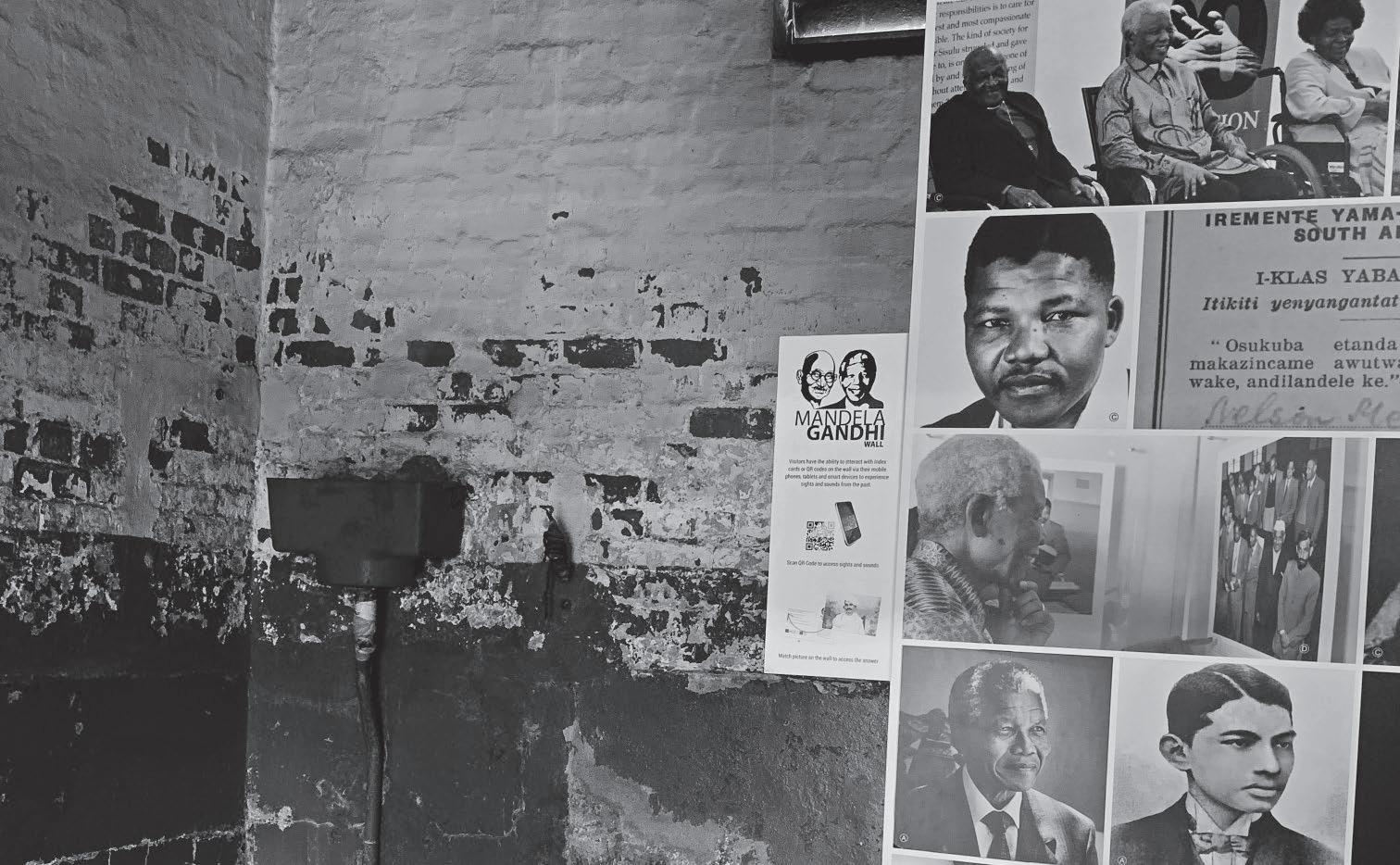
pain, and fun. Thanks to this event
I met Maya, an Indian-American who took me to my biggest treasure. The next day we went to an art exhibition titled It Means Bitch by Kutti Collective. The collective is a group of queer Indian-South African artists who draw their ancestry to indentured labourers who came from India to South Africa in the 19th century. These artists created an alternative arrival celebration archive through a set of visceral and liminal bodies of artwork. Meeting Len, Kathy, Vikram, and Lara, reminded me of a poem by Aurora Levin
the first person to text me. He is from Switzerland and was in Johannesburg for an artist residency for three months just like me. I met him at a gig with João. I got so many calls from people I had known for barely a few weeks- the sense of belongingness this gave me was incredible.
we learned from the many African countries we visited, but also about exploring art. Comics are a great way to talk about complex ideasthey are an accessible and familiar medium for all of us.
But like most artists, comic book makers have limited resources.
As much as I have loved 3
STUCK IN A ROOM / from page 2
drawing it, the process has been taxing- especially through the months of lockdown uncertainty. Things have looked up since the end of 2020, Khoj supported the on-line release of the comic, and friends have been generous with help.
By mid 2021, my comic African Caravan was finally out online for people to read!
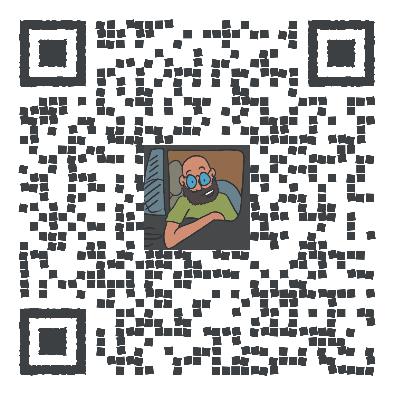
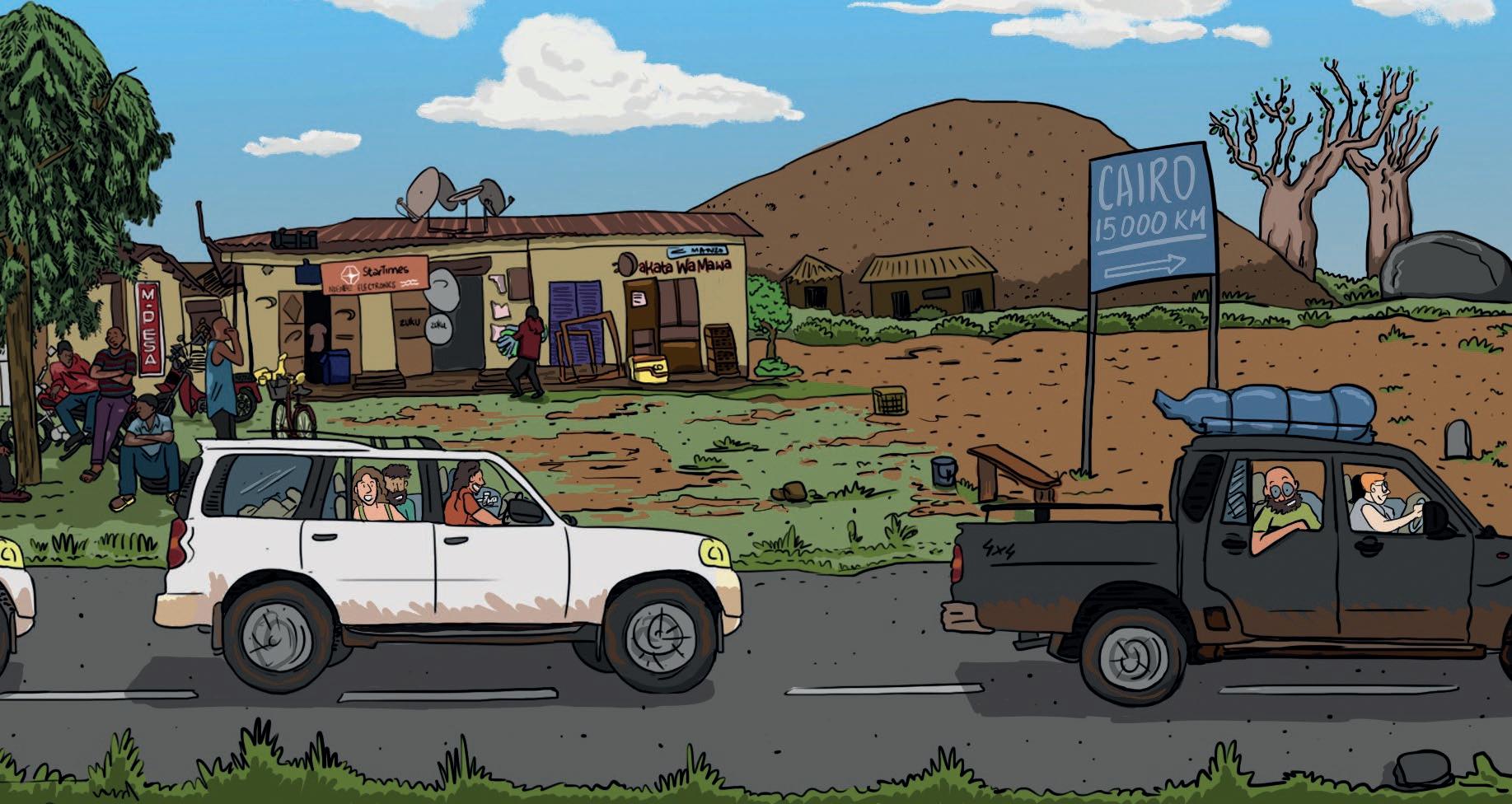
As this comic is being released
I hope it sparks conversations around race, gender and borders -
now there’s a fight Corona, understand our situation more than half the people nurtured this illusion There are no people roads with a lathi charge my eyes are moist lock down opened country & state everything shaken face is blooming But the cycle of inflation is not stopping shout out loud but against whom death will be uncountable
I think it’s all politics
Life is tough Friends and companions standing far and wide & do not talk!
locally and globally, and connects with the reader in a way that gives a glimpse into the lives of us artists and how we interact with the world around us. Especially post pandemic this comic has found new relevance for myself and hopefully for the readers.
I have been releasing it as a serialised webcomic, one chapter a month, online along with sharing my experiences in Africa on social media.
When I went to Constitution Hill, I got out of the cab at the wrong destination. So I went up to a guard for guidance. He realised I was new and did not want me to walk alone. He walked with me to a certain point and then asked another guard to escort me further, and finally, a third guard accompanied me to my destination. This kind gesture helped me reach my spot safely and also instilled a reassurance that “I’ll not have to walk alone.” My experiences of South Africa are stored in a memory pot, full of small snippets and spaces that shape Johannesburg in my mind.
My Joburg journey began with a connection that goes back to Khirkee and Khirkee Voice. Malini introduced me to João, who was part of the Khoj residency where the Khirkee Voice originated. João painted a lucid picture of the city for me. His critical reflections became my guiding principle. He connected me with Meghan, an artist who did an art exhibition called ‘Static Drift’. Through the sonic sound of the ocean and electromagnetic signals, she exhibited a talking and vocal memory of the sea.
At Constitution Hill, I went to Queertopia. A former prison complex turned into a space of democracy and justice, was reappropriated into a queer space. It was a ‘reimagined country’ that celebrated and normalized differences. A space where everyone shared love, memories, stories, warmth, grief,
“I am not African. Africa is in me, but I cannot return.
I am not taina. Taino is in me, but there is no way back.
I am European.
Europe lives in me, but I have no home there.
I am new. History made me. My first language is Spanglish. I was born at the crossroads and I am whole.”
When you see straight hair with, black or brown pigmentation you know you’ve most probably spotted an Asian. No matter how much borders try to distance us, we keep coming closer. I usually went to grocery shops owned by Bangladeshis, on 7th street in Melville. In a strange way, we shared an affinity, and greeted each other with a shimmer in our eyes. I always adored the fact that they were most of the time attuned to their phones, video calling their wives back home. In a way, we were all mimicking similar life patterns, where we were all longing for love. The macro version of this was a place called Fordsburg.
The space was filled with cosmopolitan vibes, where Indians, Pakistanis, and Bangladeshis owned most shops and businesses. There was a sense of camaraderie shared by Asians which might never be the case in Asia. It felt like a home away from home, and it reflected a way to re-look at the idea of home.
Then the Omicron variant hit, leading to travel bans, flight cancellations, and panic. Martin was
It was Christmas time, I was scared due to the 15th letter of the Greek alphabet, and my first time away from friends and family. Out of nowhere appeared an invitation to The Orphanage, a queer festmas lunch, from Treyone. ,. It was a heart-warming experience to be in the company of this warm community, far away from home.
I admire people from the land of Nelson Mandela. They speak with such honesty, simplicity, and coherence. Listening to my tour guides in Ponte Towers and Soweto felt like reading a novel. In every sentence, there were deep-rooted political sensibilities, clarity, and emotions.
If I were to draw a map of the city, I would pinpoint these people and the connections. This map is not defined by insider-outsiders rationale but by the interconnections we share. Which brings me back to my anecdote in the beginning.
After that first silent scream, I started banging the door very hard, and grabbed the janitor’s attention. He immediately opened the door, and was extremely apologetic for it. Those few minutes gave me a million sinister thoughts, but I laughed it off with the janitor. Of course, I’m glad that I didn’t make international headlines, “Visiting Indian Scholar gets trapped in South African Jail!”
[This journey was part of the Ministry of Education, Govt. of India SPARC project ‘Cosmopolitan Cultures and Oceanic Thought: Thinking through history across the waters’. The India PI for the project is Prof. Nishat Zaidi, Department of English, Jamia Millia Islamia, and the International PI is Prof. Dilip Menon, Director, Centre for Indian Studies in Africa, University of Witwatersrand. I visited CISA as a Visiting Scholar.]

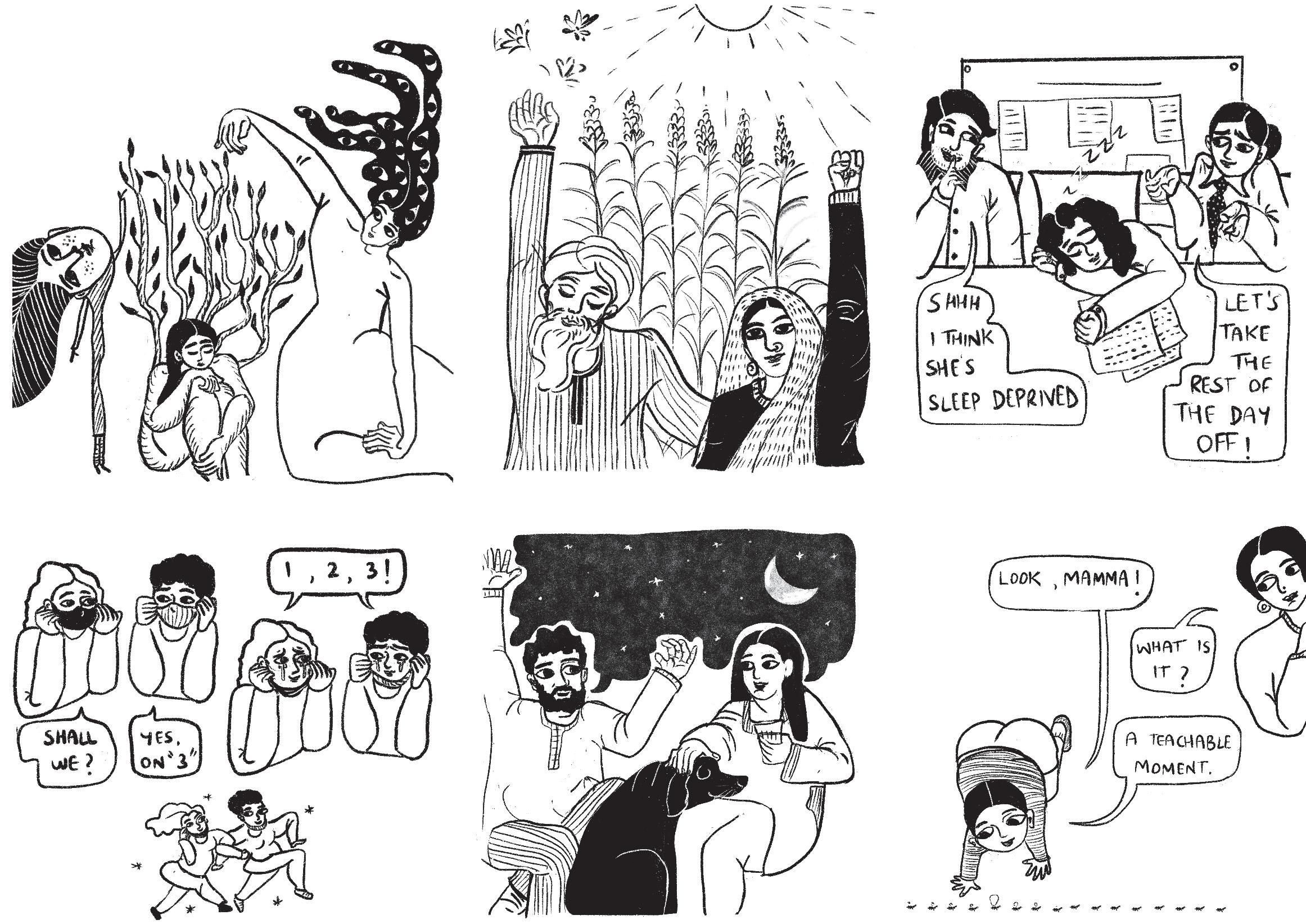
niranjani iyer
“Art is the indispensable means for merging of the individual with the whole. It reflects their infinite capacity for association, for sharing experiences and ideas.” -
Ernst Frisch
“Amateur” is one of my favourite words. The etymology of the word is late 18th century from the French “amateur” which came from the Italian “amatore”, from Latin “amator”, lover, from “amare”, to love. To do things for the love of it. Not for financial reward.
This word is mostly used perjoratively. The Oxford Learners Dictionary states that the opposite of amateur is professional. But is it really?
When I dreamt up d.r.i.f.t
- Dharamshala Residential and International Festival for Theatre in 2012, one of the many reasons behind the dream was to discover the amateurs of theatre in the small, mountain town of Dharamshala. To create conditions that would allow people to explore, experiment and perhaps discover their love for theatre. To watch, to
practice, to find joy in theatre and dance.
Our first festival in 2017 had three performances, all by theatre professionals from outside Dharamshala, our last festival in 2020, just before the lockdown, had six performances, five with only local performers, amateurs all.
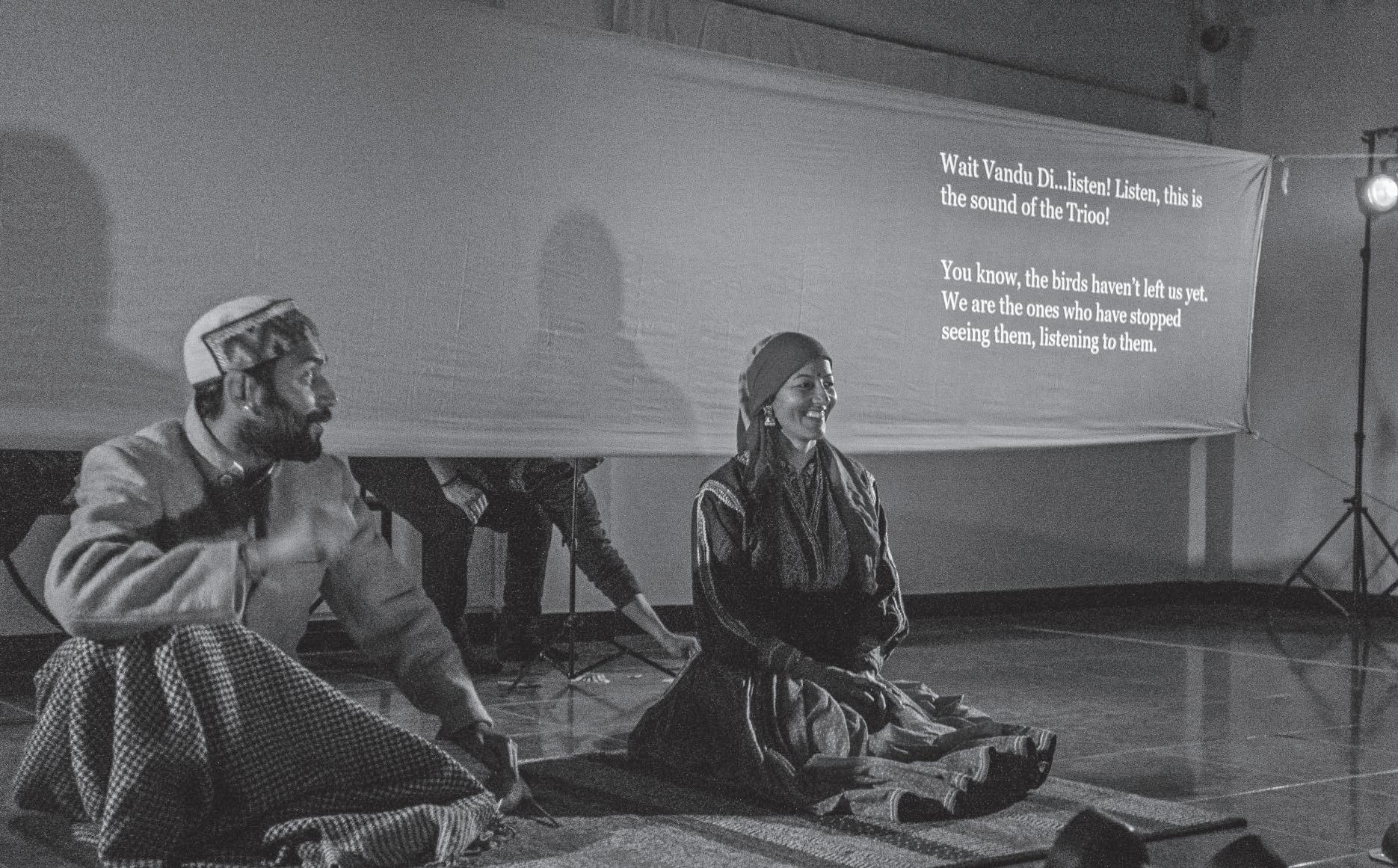
When I was a child, the Olympic Games were open only for amateurs. I wonder how many of us remember that or realise that not too long ago, till 1986, these prestigious games where people from all over the world participate, were exclusively for amateurs. Difficult to understand this in a world where football and cricket players earn as much as movie stars and where the word amateur is equated with sloppy or shoddy. This doesn’t mean people should not be paid for what they love doing, far from it. But what is important is that people should feel the freedom to write, paint, act, dance and find worth in their practice without thinking what they do is not good or worthy enough because they don’t earn their living from it. What counts
is the practice of art becoming an integral part of our lives, that our lives are touched by magic.
“..all the forms of its development, in dignity and fun, persuasion and exaggeration, sense and nonsense, fantasy and reality, art always has a little to do with magic. Art is also necessary by virtue of the magic inherent in it.“
- E.F.
S. is a Gaddi nomad who had never done theatre before, let alone theatre in his own language, gaddi. He just sent me a folk tale that he has written and narrated in Gaddi.
V. is a mother of two children who
they say covid-19 is never going away. Not really. But the world seems to carry on like before.
And inside we have all been stretched by fear, uncertainty, loss, grief, newness- into something unlike the people we used to be..
told me that she “wanted to do something for herself”, she became part of two theatre productions and is now planning more workshops and shows with the mahila mandal of her village. They are present for their art and keep looking for ways to hone their skills. Both of these “amateurs” have even worked harder on their roles than many “professional” actors I know. So how do we create spaces for artistic practice that are not elitist and non-inclusive? How do we create spaces where we can play ?
Where, to paraphrase Avery Brundage, President of the IOC
but some things are different..
“We can only rely on the support of those who believe in the principles of fair play and sportsmanship, embodied in the amateur code, in our efforts to prevent the Games from being used by individuals, organisations or nations for ulterior motives...meaning: to make more money” What I dream of today is for governments, art institutions and agencies to open themselves and their spaces to allow people who inhabit their neighbourhoods to explore and discover the joy of art as part of their lives.
like when rest feels natural, even encouraged in the fabric of our everyday life...
Malini
kochupillaiIhappened to be in my other village when the lockdown hit us in March 2020- a little village nestled in the lap of the Himalaya, with the mighty Dhauladhars making for an ever-changing display of skies, clouds, mountains, and mist. At first, there was reliefof not being stuck in the confines of limited space among paranoid neighbors in the city, of having the freedom to move about in clean, fresh air and stunning views. Then the anxiety crept in- access to medical services in the mountains is limited, and people in villages can be as paranoid as those in the city.
S’s son tested positive for COVID-19, and she immediately panicked. She called me in tears, unsure of what will happen, and imagining the worst. Her daughter worried about how they would buy food. When I met her a few weeks later she was full of relief, and gratitude- friends, neighbours, colleagues all stepped in to help without being asked, buying her family groceries and medicines as they self isolated at home. I imagine this same scene has played out across cities and villages since the pandemic struck- paranoia can’t kill all our humanity.
the lap of nature. City life has a rather harsh way of cutting you off from mother earth- food comes in plastic packaging, apples are available through the year. But surrounded by fields that must be sown and reaped in response to natures’ cycles, never mind your lockdown, makes you look at the world differently. You start to see the correlation of depleting forests, and monkey infested abandoned villages; the abstract notion of ‘climate change’ becomes real with unseasonal rain wrecking havoc with harvest cycles- every season. But with this, sometimes stark, proximity to nature comes a deeper sense of understanding and empathy- for fellow humans, animals, trees, insects and more. Learning about bees and the way they live, observing and caring for them over the past three years, has been a crash course on reconnecting with nature. In a short life span of a few weeks, bees will feed themselves and their community, will care for, and nurture each other, build and clean her home, and will fly over 5 miles a day to affect the birth of countless flowers, fruits, and treesa life spent giving and taking as she lives harmoniously with nature. But nature is also harsh- bees die when they sting humans, which is why they will only sting when they
Mahavir Singh BiSht
how it feels to see someone’s face for the first time in more than a year... also... walking like this.
the way big talk, unlike small talk, comes easily...
i think small utopias are already playing out like precious flecks of gold in the river of our everyday...
I started working in this rural Himalayan idyll in 2018, but only started living here during and after the first lockdown. Over this relatively short duration, the village has adopted me as their own- walking down the main street feels like an extended conversation. If I go away for a few weeks, everyone wants to know where I was, glad to see me back.
Becoming part of a community is not so difficult- all it takes is some empathy and proximity. I felt like this when I lived in Khirkee- this same familiarity with neighbours, the passing conversations, the warm smiles welcoming you back. Perhaps villages, both rural and urban, have more similarities than we see at first sight.
What have I cherished most about being in a village through this strange time? Frolicking in
feel threatened. I remember being stung by a bee at an apiary as I was trying to get a close up - at perhaps our fourth or fifth honey harvest, two years into first meeting bees. My first instinct of screaming and flailing my arms dissipated quickly, I was calm, but sad that a bee had sacrificed her life for a picture. It felt like I passed through a portal in that moment- one that connected my city life and village life seamlessly.
Pondering that portal over the past few months has sparked new questions, ideas, conversations, and longings. Can there be a place where the idyll of my mountain village, and the excitement of my city village come together? Can bees permeate our everydayeverywhere? Can city life become more in tune with nature? Only time can tell.
Last year after the lockdown was relaxed In the month of June, I stepped out for work. The whole exercise felt like preparation for a battle. A day earlier I visited the medical store to buy an N95 mask along with rubber & disposable hand gloves and a face shield. While booking a cab a strange feeling of curiosity and nervousness engulfed me and I started feeling giddy in the stomach. Watching Covid Warriors stepping out daily to save lives on the news on TV screens and actually stepping out for the first time felt really brave in the middle of the pandemic. I saw a thin sheet of plastic film separating me and the driver. This invisible wall was acting as a shield against the virus. I was getting sweaty from a strange discomfort as soon as I entered the cab. I was repeatedly sanitising my hands. To divert attention, I started a conversation with the cab driver. Our voices were muffled due to the mask and we couldn’t hear each other clearly. I could gauge that most of his daily business had come to a standstill and he was barely surviving on meagre earnings. He had sent the entire family to his village in Uttar Pradesh. It was a need to stay here in the middle of this crisis.
The roads in Delhi were empty. I reached Khirkee Extension sooner than expected. As soon as I entered the locality I felt a sense of relief and I started walking as I entered the main street. There were hardly any people on the street and you could feel a strange eerie silence. You could see markings in the form of white and red circles and straight lines in front of the local kirana shops. There was no one in the sweatshop compound on the left turn. I was looking for a familiar face, but my efforts were in vain.
The ambience of the Khirkee

was uncanny, similar to that of my street in North Delhi. I thought that this epidemic has made countless streets and places around the world look and feel similar. When I was speaking with my friends over a video call, they were talking about recurring strange dreams during the lockdown. I myself was going through a phase of colourful and strange dreams. It was common to not sleep till late at night during the pandemic. I often had dreams about my mother. Much before this period of crisis and grief, in February 2019, I lost my mother to pneumonia. The night my mother passed away, all my friends were there with me. I had overcome that grief to a large extent, but in the lock down everything was coming back. In such a situation, I started growing many plants on my terrace with my father. We would water them in the morning. From time to time, cutting and pruning was done after an interval of nourishing them with fertilisers. Seeing the plants growing and changing slowly in the lockdown, it felt as if time was slowing down.
On reaching my Khirkee workplace , I ate home cooked food which I had brought in a tiffin box for lunch. I obsessively sanitised the mineral water bottle and hydrated. While leaving for home in the evening, I saw a well-dressed man in the street asking people for money on the samsan road near the Khirkee village area. He was asking for help and telling passers-by that he did not have money to feed the children. I couldn’t understand what was happening. I stared at him helplessly. Then an auto rickshaw driver passed in front and started asking where to go. We started towards my house in Azadpur.
On the way back he started the conversation on his own. During the pandemic when he had no money to pay the rent of the house, he decided to leave for his home town
in a jiffy. He got a LPG cylinder fitted in his auto rickshaw and moved his family of 6 towards Azamgarh via the interior roads of Delhi and Ghaziabad. I could not believe his words. I asked him how he got away from the police. He told me once he was caught, he pleaded and told his plight to the policeman, then he let him go. Leaving the family there in Azamgarh, he immediately returned to Delhi to earn a living. Leaving me near home, he bid farewell.
On reaching home, I sanitised myself thoroughly. Kept the clothes separately in the balcony outside and took a good bath and locked himself in the room for a few days. I didn’t want Dad to be in any kind of danger. I contacted him after a few days only after being convinced that I haven’t contracted any virus. My brother and his family living in Australia would reach us through video calls every other day. The situation in their country was not very different from here. Dad and I would walk on the terrace every evening and watch the plants grow. In a city like Delhi, this kind of peace used to give a feeling of fear and contentment at the same time. At the end of the day, both of us would make dinner together and eat in peace. Then the next morning amidst the turmoil, we would get up in the midst of daily chores, cook food, talk to family and relatives, hear the news and news of sorrow and courage in the neighbourhood, and move on with the same vigour the next day.
-When India started its vaccine program in January 2021, I booked a slot for my father as soon as the booking started. I felt a gush of confidence in my father after getting the vaccine shot at St. Stephen’s Hospital in Old Delhi. Perhaps this moment was a ray of hope in this difficult period for me and my father.
Steven S. George relates part 2 of the fictionalised account of an interview with Prof. Dilip Menon, unfolding as a dream in the streets of Khirkee Extension.
The story continues, Steven insists that Professor Dilip Menon should swim through the streets
Prof Menon: I can’t do that!
Steven: Sir, you can!
Prof Menon: Firstly, I am not doing this! Besides, it isn’t possible.
Steven: Sir, it’s possible!
Prof Menon: I think it’s going way beyond what I am capable of!
Steven: We can! Trust me!
(Steven holds Professor’s hand)
Prof Menon: How’s that possible?
Steven: Yeah, it is!
Prof Menon: How come I can hear all this? And how did we reach here?
Steven: Relax, it is black magic just like the Black Atlantic!
Prof Menon: Oh, really? Is that Cameroonian makossa music?
Steven: Precisely! You’ve got a good ear for music.
(Steven and the Professor magically land in a restaurant)
Prof Menon: What is going on? Where are we?
Steven: We’re swimming across time. The music you hear, it’s all in my head. A few years back, it used to be played in a Cameroonian kitchen in Khirkee.
Prof Menon: Then?
Steven: It was vandalized by a frenzied mob over arbitrary accusations. Let’s have something, you must be hungry!
Prof Menon: No, I am not! Are you hungry?
Steven: Definitely, I am. Thanks for asking.
Sultan (pops up): Welcome, sir! What would you like to have?
Steven: First, tell him what you have?
Sultan: Afghan burger, Bolani, Sambusa, Ice cream, and traditional Afghani chicken soup.
Prof Menon: Wow! That’s quite a menu. So you brought me to an
excluded from humanity because they are outside the notion of community created by the idea of the nation and the state. We need a sense of the Earth not from the idea of citizenship but from the fact of the refugee, which will do away with the very idea of the refugee itself, and assert that we all are human beings who belong on this Earth. Refugees have little respect for the boundaries created by oppressive states; creating new identities, they cross borders and chart a unique geography. If the slave is the first modern subject, the refugee is the first postmodern subject, the post-national subject.
Abdul: How can we see maps and geography afresh then?
Afghani kitchen?
Steven: Isn’t it fun? Listening to Cameroonian music and feasting at an Afghani kitchen.
Prof Menon: Can it be played through a speaker instead of my mind?
Steven: Sultan knows the magic!
Sultan: Sure!
(Music playing in the background)
Steven: I’d like to have an Afghan Burger and an Ice Cream.
Prof Menon: One Afghani chicken soup for me.
(Sultan serves the food and starts a conversation with both of them.)
Sultan: Is this the person you were talking about?
Steven: Yes! He is a historian by training.
Sultan: Like the Bhatts?
Steven: Not exactly, but somewhat.
Prof Menon: Who is the Bhatt he is referring to?
Sultan: The community in Khirkee Village and many other villages maintain their genealogical records through Bhatts.
Prof Menon: That sounds interesting!
Sultan: Each Bhatt is the Kulguru of several villages and he visits them periodically. In earlier days, the villagers would gather each night to listen to the Bhatt’s tales of their ancestors’ lives and experiences.
Steven said, you do something similar.
Prof Menon: Somewhat similar, and my approach might be a little different.
Steven: I told you he is a Professor, he guides scholars’ theses, delivers lectures, writes academic books and papers on communities around the world.
Sultan: Sir, please tell me how you approach it?
Prof Menon: My students and I work across what are called the social sciences and humanities, anthropology, philosophy, literature, social theory, and more. The idea is to think about the world and bring various ways of thinking into conversation with each other. Its to keep a memory of conversations going, and in that sense, it’s similar to the Bhatts.
Sultan: I love oral histories. They tell us so much about the world.
Prof Menon: That is my interest too. By the way, how are you able to make the traditional Afghani soup here?
Sultan: There are various routes through which asafoetida and other spices are imported from Afghanistan to India. It is in huge demand, as it is used to make hing, which not only makes food taste good, it is great for one’s health. I purchase this unique spice at Rs 1000 per kg in Delhi. The best asafoetida is found in Mazar-i-Sharif.
Steven: Tell us more about Mazar-i-Sharif.
Sultan: It used to be a popular tourist spot because of the bluetiled sanctuary and mosque in the center of the city. It is considered to be an oasis of peace. A popular legend has it that the mosque is so sacred that a dove with even a speck of color on its feathers will instantly turn pure white in the vicinity of the mosque. In fact, there is a popular Afghan song Bia Ke Berem Ba Mazar (Come, let’s go to Mazar). This place has a vast history, you must visit the site someday.
Prof Menon: The soup was great, and your narrative was excellent.
Sultan: Thank you. I feel good when people listen to me.
(Swati enters the restaurant with someone)
Swati: Sir, this is Abdul.
Prof Menon: Hi, Nice to meet you.
Swati: He is from Somalia, and has lived in India as a refugee for over 19 years. He has completed his MA recently. I called him to have a conversation with you, he runs the Khirkee Talk Show.
Prof Menon: I am already getting late, I must leave now.
Abdul: Sir, it would be great if you could answer a few questions, the audience is already here. All arrangements have been made.
(Prof Menon is stunned on seeing the people gathered there)
Prof Menon: I hope Steven, that you are not involved in all this.
Abdul (winks towards Steven): Not at all, we hardly know each other. Please, it’s a request.
Prof Menon: Okay, keep it really short.
Abdul: Okay, great! So, I’ll cut to the chase and directly ask, what is your opinion on refugees?
Prof Menon: The idea of a refugee exists only if we have a prior idea of the nation, citizen, and borders. Otherwise, the world belongs to all human beings.
Abdul: What is the relationship between the ocean and the refugees?
Prof Menon: The ocean for the refugee is not a barrier but an enabler. For example, I use this image of Syrians walking on the ocean, similar to the metaphor of Christ walking on water. While drawing upon the idea of the miracles associated with somebody who redeems humanity, it also draws attention to the limitless human potential that can be tapped. It allows for a way of thinking about the world afresh and helps us to redeem ourselves from the prison houses of nations that we are trapped in.
Abdul: Sir, how can we think of the world through refugees?
Prof Menon: It forces us to think with the most deprived, most subordinate human beings who are
Prof Menon: Geography, as seen in a map drawn by a cartographer, is built on the idea of nations, borders and national history. We need to look at geography and territory as made by the movement of people, ideas, and goods. We can think of geographies of affinity, of imagined connections: between Asians and Africans and emotional geographies created by the Indian, African and Sri Lankan diaspora that connects Lagos, Nairobi, Delhi, Toronto, and Colombo. We have to keep adding adjectives which capture the experience of human beings, rather than restricting ourselves to lines drawn by a cartographer.
Abdul: Does your idea of the ocean as a method facilitate decolonizing the mind?
Prof Menon: Disciplines like history and geography have a set of ideas that have come from the West and have become universal through acts of power like colonialism and empire. The ocean as a method helps to puncture some of these imperial assumptions and allows us to think that the world has a more extended history than that created by European colonialism. Our notions of space and time expand.
(The audience starts clapping, and the Professor wants to leave as soon as possible.)
Abdul: Thank you for answering the questions. It was beautiful to have you here and thanks to him (winks towards Steven), who did not frame these questions.
We started taking Online Learning Sessions at Agaaz during lockdown where we spoke on different things and asked many questions. The most amazing thing for me, which I had never imagined before, is this word ‘space’: There can be so many questions about this one word! When does any space become my own for me? What does space mean to me? How do you create space for others? If someone is coming into our space, how do we prepare ourselves? What do we do, or can we do to make a space our own? What things help to make a space feel like your own? What kind of space do you like? We all had different answers to these questions, and some are the same“Where no one judges me on anything”; “Where my words are heard”; “Where there is space to share”, etc.
I found this very amazing because I had never thought that so many discussions could happen around this word.
I hope that we will keep asking many such questions in our Learning Sessions, and we will continue our journey to know and understand ourselves, and our work more deeply.
The above is an excerpt from an article written by Jasmine for Aagaaz’s blog. Jasmine started doing theater with Aagaaz in 2012. She is currently a member of the organisation’s theater repertory and one of the young facilitators who works with children in Hazrat Nizamuddin Basti. Her explorations around “space” are individual, of course, but have also been primary to Aagaaz’s journey as an organisation in the last two years.
In 2019 December, as solidarity and people’s voices became stronger in Delhi and across the country, our search for what it means to be a community arts organisation took new directions. With the lockdown, our isolation from the neighbourhood of Nizamuddin that we’ve been rooted in, as well as the people in the city we were constantly in associating with made us look deeper into our definition of a “community”.
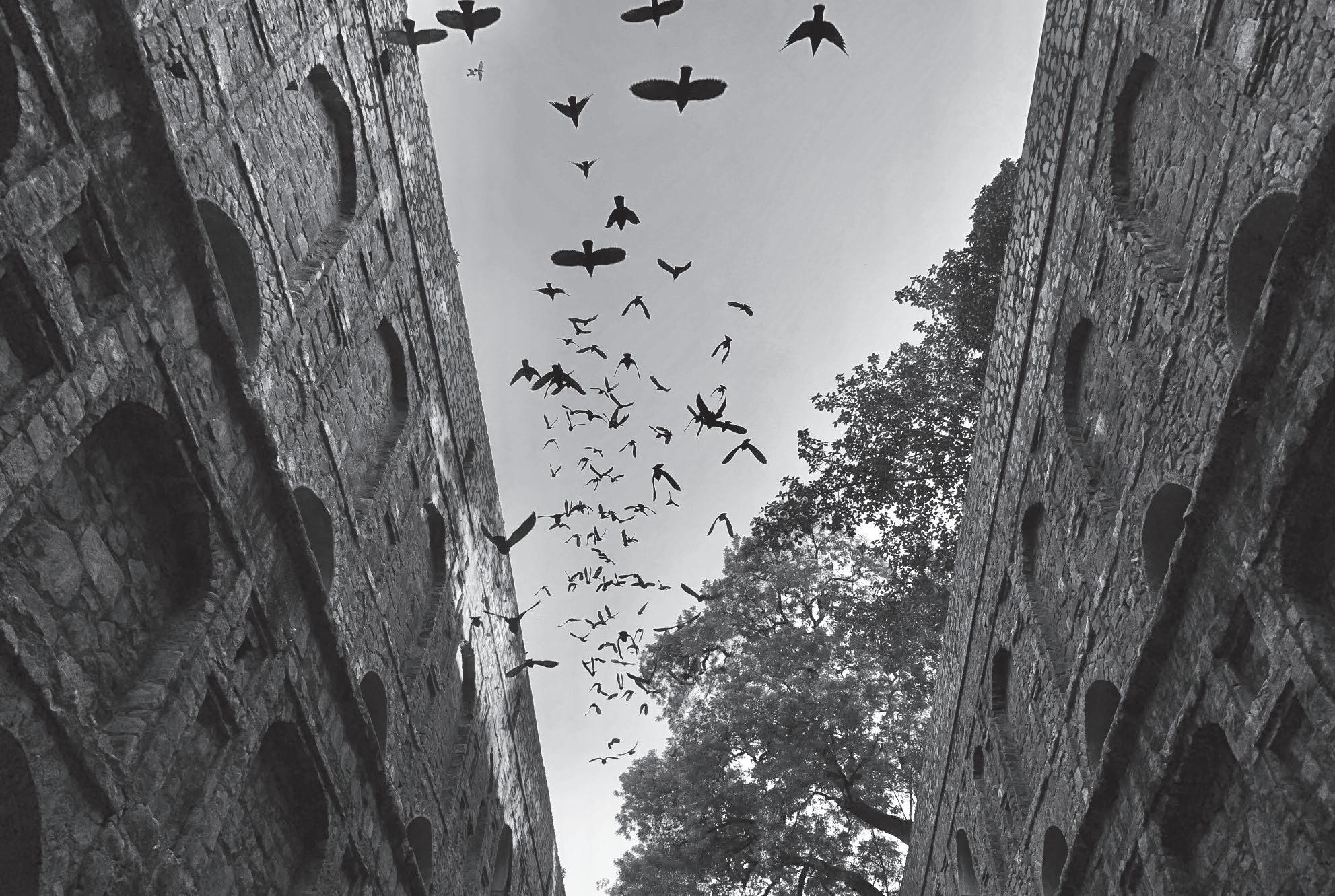
desire to explore what “community” could truly mean, fuelled by a sense of isolation led us to taking our Drama Jam* online in April 2020, and inviting like minded practitioners to initiate a group in June last year, and dubbed it the Facilitators’ Collective**. As more artists join, we have grown from a team of three in March 2020, to a collective of more than 30 arts practitioners from the worlds of theater, movement, music, visual arts, and education. Other than the learning center in the Nizamuddin basti, we also work out of Khuli Khirkee now. This sharing of space has been tremendously rewarding, giving birth to new collaborations, exchanges, and ideas.
we begin to move against domination, against oppression. The moment we choose to love, we begin to move toward freedom, to act in ways that liberate ourselves and others.”(bell hooks)
We are still searching and traveling. Subhadra, who is a member of the core team and a facilitator now, says:
Aagaaz Theater Trust has been doing Theater workshops with communities in Nizamuddin Basti for years. They have recently set up space in Khirkee Extension as part of an exciting new collaboration, Facilitators’ Collective. They tell us their plans!

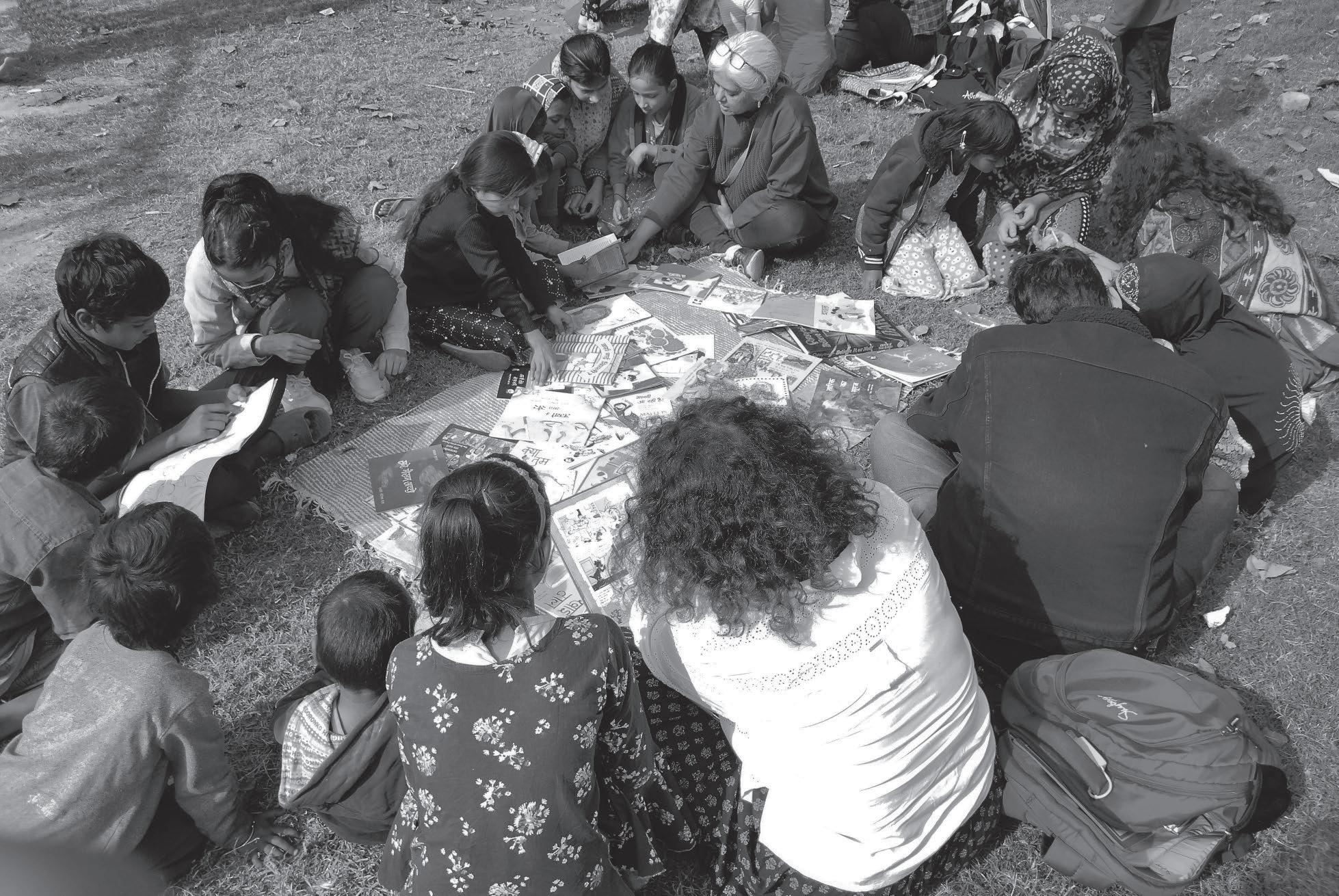
Afghanistan, Indian, Congo, and Somalia work together along with arts practitioners who engage with their neighbourhood regularly? In 2017, we collaborated with KHOJ to create the Khirkee Music Ensemble for the Khirkee Festival, an evening of music in a public park that had audiences from across national lines swaying to an eclectic
ried weight, to a space where I had to keep pace with the topics being discussed was a game-changer for me. It involved me making a mental shift from being a teacher to a learner. The self-exploration continues.
At Aagaaz, the joy lay in designing and facilitating workshops for the young ones and being envel-
Steven: Sir, this is the plot I dreamt of yesterday after interviewing you.
Prof Menon: Okay! Are you sure you are not making it up?
Steven: Who knows? (Both Laugh)
Are we a community based organisation by virtue of engaging with people in a neighbourhood? Are we community led if organisationally, all decisions and programmes are managed by a team of three? Within walls of our own making and the distances created by the pandemic, how could we continue practicing arts for social action? These questions were urgent in the context of political realities and the pandemic. The
We are learning to find possibilities together slowly. We meet every week and play, read, dialogue, reflect, and laugh. We are discovering each practitioner’s art and craft of facilitating sessions and what collaborations between different practitioners could create. Since last year many workshops and ideas have germinated in the virtual world. This year, we are taking these workshops that create little worlds to be explored through stories, theater, music, visual arts, and movement, for children and young people to Khirkee and Nizamuddin.
While dreaming together, we are slowly learning how to hold conflict and finding the courage to embrace a journey within, at each step. Yes, we are connected by values and ideas, but are (thankfully!) also very different in training, experience and nuances of our views. We don’t always agree, and so we grow together. While reading Paulo Freire’s Pedagogy of the Oppressed earlier this year, we reflected on our practices, and differed on our ideas of the dynamics of the oppressed and oppressor. Can there be these uncontested homogeneous categories? This led us to feminist critiques of Freire and delving into bell hooks’ ideas of love and hope.
“The moment we choose to love,
This year has been about collectives and collective dreaming and collective seeking for me. For the things we got and also the things we missed. The ones we lost and the ones we were gifted and the many that are yet to come! I dream of puncturing the inflated space between those who create art and those who seek it, making it accessible to each person whose voices and opinions are missing, the ones that really matter.
We are on a journey to discover a common language by continuously reflecting on our practices through different lenses. Today, we dream of making work that challenges the boundaries between applied practice and performance practice. What will it mean to create performances that challenge the everyday experience of familiar spaces? We hope to create work that introduces the bizarre in the known interactions with people and spaces. We are curious about the conversations that these may initiate.
We dream of constantly delving deeper into ourselves, each other and the world to develop ourselves as arts practitioners and educators. We are inspired by the many overlaps as our community grows and the growing solidarity alongside. In Khirkee what will happen when young people from the
collection of local talents. We plan to create many more such experiences- rooted in challenging notions of otherness- in the coming years.
Mudita is a pre-primary teacher at Shikshantar in Gurgaon. She is an avid reader of literature for children and a powerful storyteller. She is curious about the role of performance arts in her work with children. She has been a member of
oped by their enthusiasm and innocence. Making gadbad ghotala (read nonsensical) songs, setting them to tune as a team, getting into characters to relate the excitement of a story, all proved to be the hook to stay on.
When the physical spaces opened up, engaging in games and exercises with our energetic team many of whom I was meeting for the first time, felt like being enveloped in a blanket of warmth. The space echoed with encouragement, revelations, soulful reflections as well as laughter and mirth.
With physical engagements promising to increase, being an effective participant within the community and collective is the goal. Expanding the vision of Aagaaz to more communities that seek such interventions is something that I look forward to.
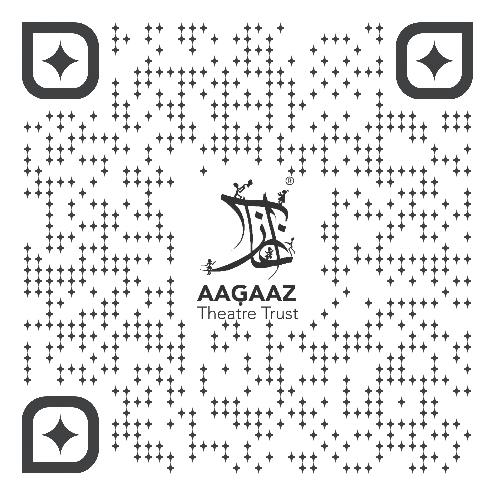

the Facilitators’ Collective since its inception. She says:
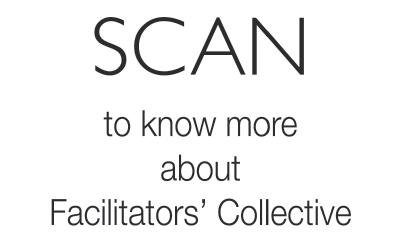
It was the warm welcoming cofacilitators and the mental challenge offered by their discussions that roped me in. Coming from a workplace where my words car-
What is a community if not a group of diverse people finding some commonality of purpose and thought, associating with one another? What does it mean for arts practice to be rooted in this sense of community? What does it mean for individuals in a community to consistently develop their arts practice with a sense of solidarity?
These questions are alive for us at Aagaaz, creating an everyday sense of discomfort, safety, conflict, and courage in reflecting and in acting.
“Flying high with our questions to fill out our colors”
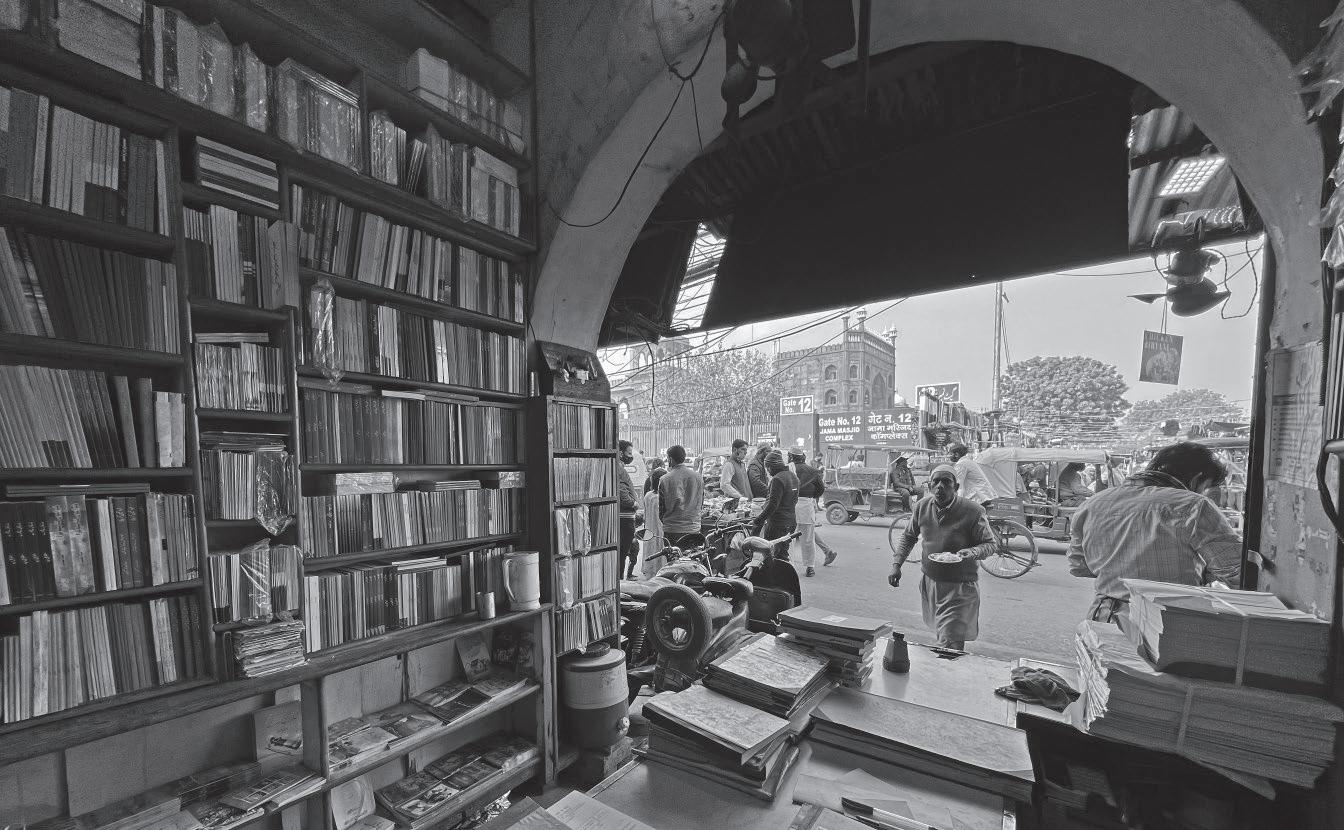
DaneeSh MajiD
Like many around the country, the pandemic had rendered me immobile. But two months after my vaccination in September, I ventured to Delhi.
Among the first things I did was hop aboard the violet line of the Metro and get off at the Jama Masjid Metro Station.
Climbing the mountain of stairs up to the exit, much before the waft of the Mughlai Kebabs hits the nose, the cacophony of hawkers’ attempting to court customers gets louder, but not loud enough to drown out the Azaan- a sound that invigorates some, repulses otherscoming from the majestic mosque built by Shah Jahan.
and many newspapers published in Urdu. The storm to destroy or dilute hasn’t engulfed Hyderabad as much. But nowhere do I connect with the language on a literary level as I do in the city of Delhi.
While my journey in Urdu had started in Hyderabad, Umerkhadi in Mumbai, and the Urdu Bazaar outside Jama Masjid have played quite the role in making me the Urdu-daan I am today. I am a voracious consumer of the original, unadulterated works of Daagh Dehlvi, Saadat Hassan Manto, and Qurratulain Hyder. I would much rather visit the Kutub Khaana-e-Taraqee-e-Urdu or the Maktaba Jamia to quench my thirst for long forgotten prose than attend fancy festivals that
had the following verse succeed the one mentioned above?
Kaun jaaye Zauq par Dilli ki galeeyaan chor kar?
The sheer poetry that these alleys have inspired makes me reflect on the language itself. The verses of Delhi’s poets reverberate in this old part of the city. Any description of the city is incomplete without a few Dabistan-e-Delhi lines that exalt and eulogize it. Mir Taqi Mir’s sadness at the dilapidation of the once glorious Mughal Capital is evident here:

Kya bood-o-baahs pooch ho Purab ke saakinon
Hum ko ghareeb jaan ke hans hans pukaar ke
Dilli jo ek shehr that aalam mein intekhaab
E
Jostling for attention amidst religion and streetside enterprise are Urdu bookstores that a lot of city folk conveniently pass by. Although one might see literature scholars inquiring about the collection of a once prominent Dabistan-e-Delhi versifier that they might be doing their PhD on, or perhaps a bearded prayer-cap clad fellow inquiring about an Imam Saheeh Bukhari translation.
For most people, these are just bookstores containing exotic relics of the past ridden with the romantic and revolutionary. But for a Deccani like me, they are travel destinations that are steeped in the promise of literary and linguistic fulfillment.
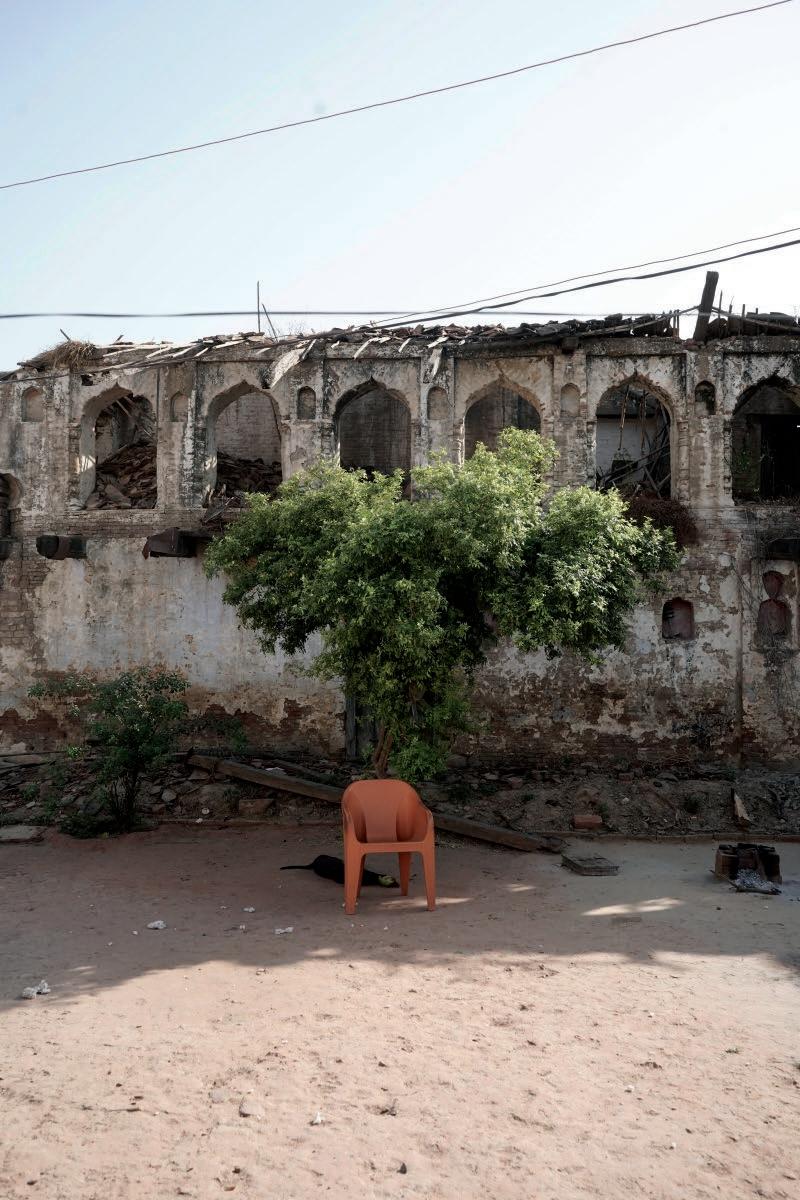
There is a line from a Mohammed Ibrahim Zauq couplet which refers explicitly to my native region.
Inn dinon Deccan mein hai badi qadr-e-sukhan Hyderabad has always been a hub for Urdu- evident in the large number of sign boards that use the nastaleeq/nasq script,
do little to revive the language. I was so happy to see Nizamuddin and his son Moinuddin at Kutub Khaane-e-Taraqee-e-Urdu on my visit- to know they are still here through these uncertain times of the pandemic.
This is not to say that Hyderabad isn’t home to indigenous literature and poetry, or that I haven’t unearthed some rare treasures in vintage book depots and other hideouts. But gems like Rajendar Singh Bedi’s Ek Chaadar Maili Si, or his short story collections, or Qurrataulain Hyder’s novella Sitaharan, are not to be found in Hyderabad. Even Daagh’s selected poetry, despite the poet being buried in the city’s Yusufain Darga, is almost absent here.
Except at considerable cost at Chowk’s Haziq and Mohi bookstore. This is the one place one might chance on rare booksif lucky- in collections of books donationed by the elderly owners’ families.
Traversing through Old Delhi bylanes, is it any wonder that Zauq
Rehte the muntakhab hi jahaan rozgaar ke
Jis ko falak ne loot ke veeraan kar diya
Due tos the sheer collection of literary material and the fact that the gold standard of Urdu was spoken here, the words Delhi and Urdu evoke the following poetic tribute:
Dilli ka tu ne naam liya hai jo hum-nasheen
Ek teer mere seene pe maara ke haai haai
Such poetry full of lament about the state of a beloved city helps you connect with the aura of a city even when outside of it.
Every time I leave Delhi for the Deccan, Ghalib’s maqta (the last two lines of a ghazal containing the poet’s name) from his Dost Ghamkhwari Mein Meri ghazal, always makes for a fitting tribute to the city where they honed their craft.
Hai ab is mamure mein qehet-egham-e-ulfat Asad
Hum ne ye mana ki Dilli mein rahe khavenge kya
W H E R E
“If I row in this current I shall never reach the shore but I have no regrets to merely keep rowing.
I found pace when I rowed along this stream, I find pace, I find pace.”

As I walked around the river in my village I found myself going back to these words by Jayanta Hazarika from his song “Mor’e Nao”. It’s late March, the crops are being prepared to be cut in Shahpur, my ancestral village in Uttar Pradesh. Last time I visited the village was when my maternal grandfather had passed away.
He would often narrate stories of the village, our house and the river that flows by it. In his words “our house and the river are two ways to reach our ancestors.” He would also say “if we remain quiet, we can hear our ancestors talk”. All these years, I have lived through my grandfather’s words keeping the village in my memory. However, a lot has changed since then. The river that I once knew has receded, people who would fill the space in the house with life have now moved to the cities. Piece by piece the house was falling down.
I decided to document the house in photographs- the only way I knew to keep it alive. It was also a way to explore

the river with the question, “where do I and the river intersect?”
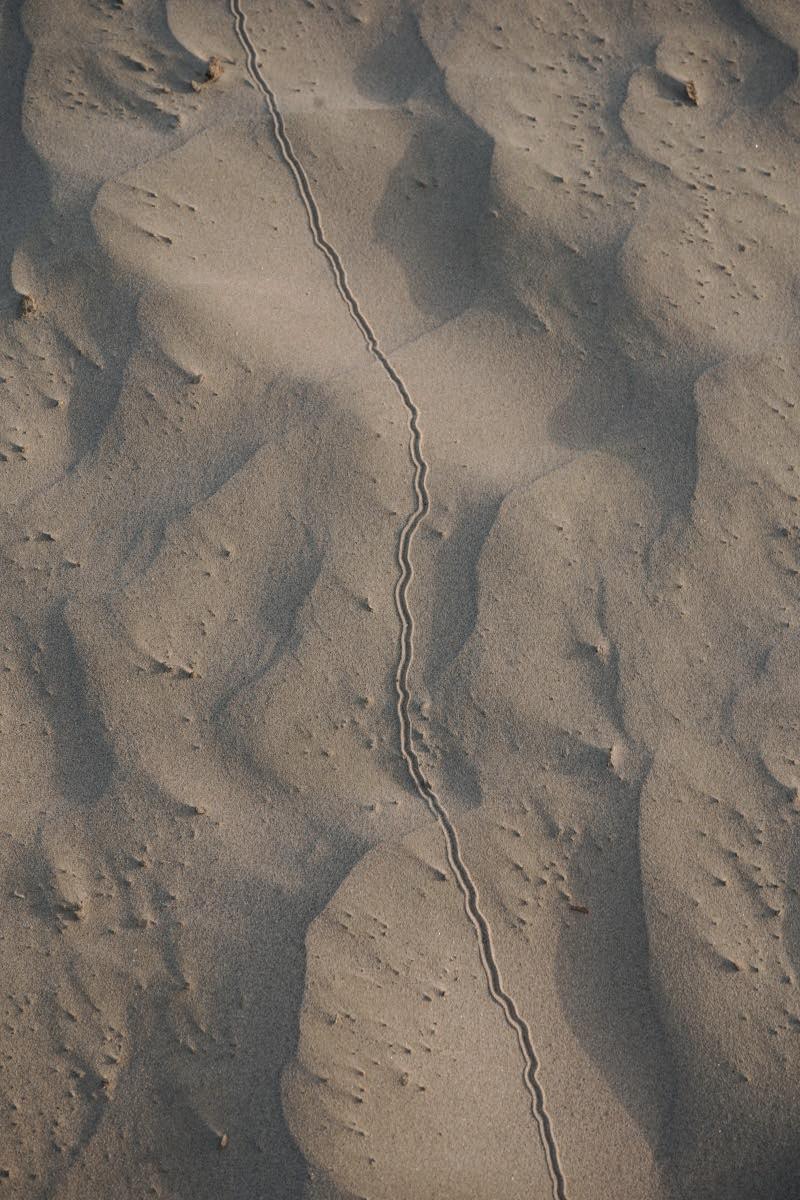
Around that time, the pandemic had started to work its way into Uttar Pradesh. An overcast sky sat for days as the smoke slowly creeped in and wiped out an entire generation that I dearly wanted to hold onto. My freedom was restricted to the house and making photographs seemed daunting.
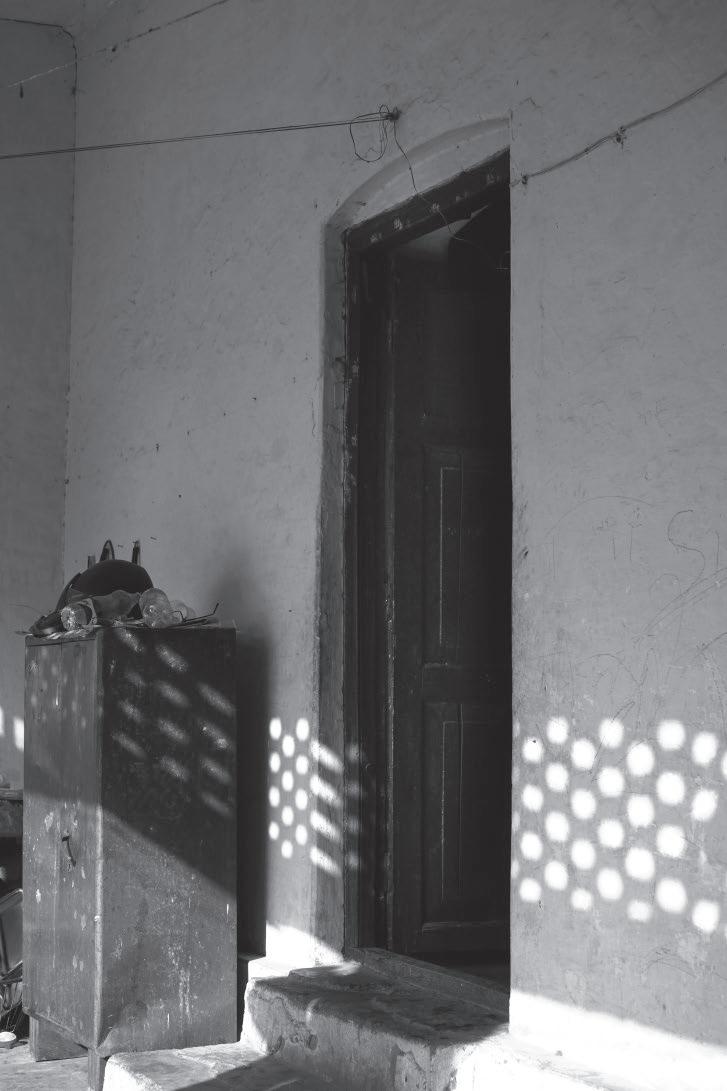
The news of my grandfather’s passing came about and I got stuck within the walls of a house that couldn’t stand on its own. I found myself between loss, grief and regret.
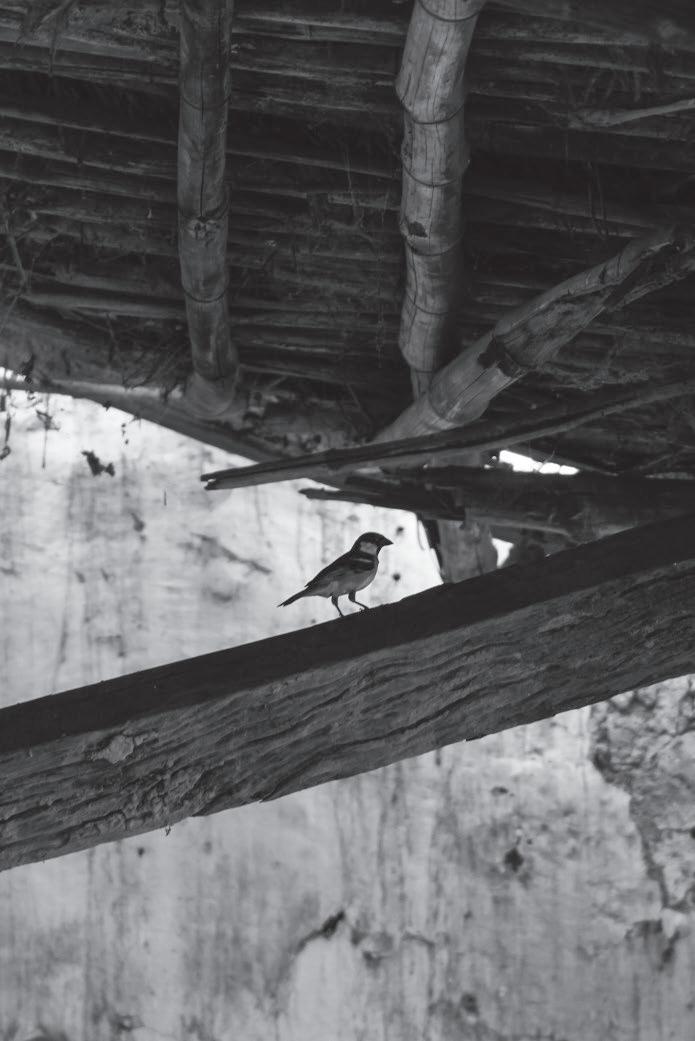
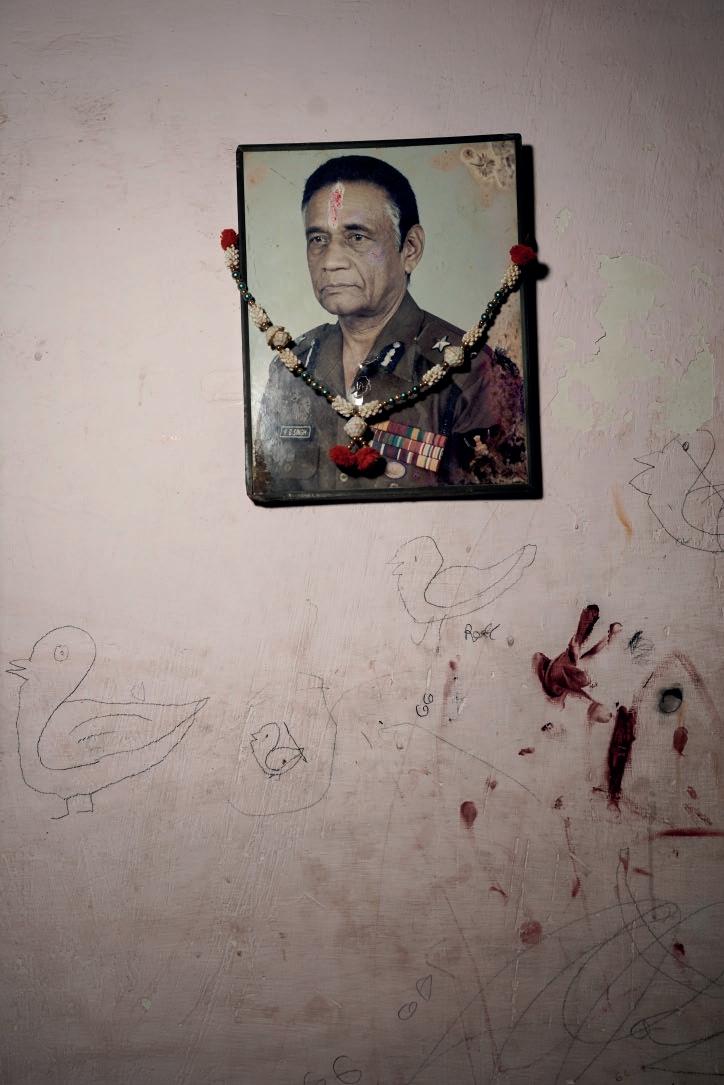
How could I continue photographing? How do I find pace when the river has no movement?
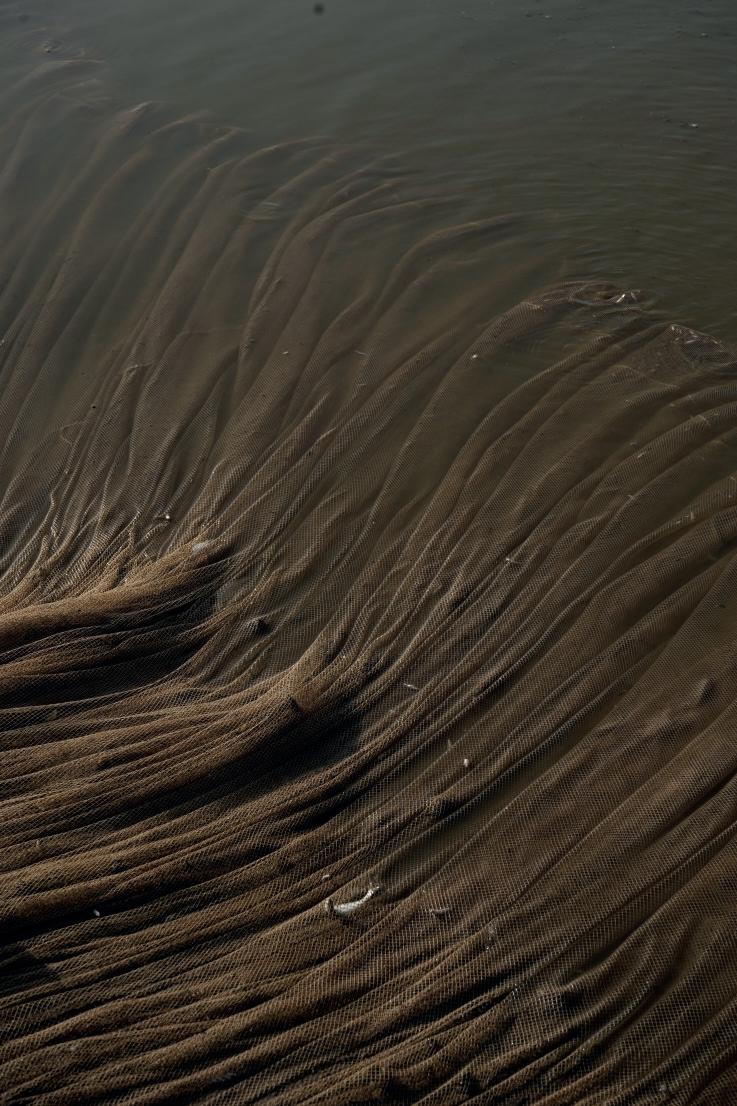

Ravi was born in Champaran, Bihar and came to Khirkee village in 2005 after completing his fifth grade in school. He has been pursuing and learning to rap for the past few years. One day he thought that he could write according to the melody. Thus began his process of writing songs and poems. He likes to write for himself. But he takes inspiration from the surrounding environment in his poems, songs and rap songs. He works on contract at a government company. In his spare time, he jams with his friends. He dreams of performing some day on the big stage.

Another Outsider
Today yet again someone has arrived from a distant village to this big city leaving his house incomplete, he has come to complete someone’s house

I have heard that some outsider has yet again arrived today.
Skills at hand stamp of faith respect to elders brought such things who complains the outsider has arrived empty-handed thousands of faces, thousands of names have come today some foreigner has come again

I have heard that some outsider has yet again arrived today outsider is invaluable for Munna Nunni he has brought a doll with hard earned money he paid his loan sharing happiness with family outsider has yet again arrived in the city today
I have heard that some outsider has yet again arrived today I have heard that some outsider has yet again arrived today
Darkness
I am darkness
I am darkness opposite to light trailing the light is darkness
I’m a darkness people love me and hate me too I am their aspirations and their desires too
I’m darkness but not bad everyone called me bad but no one ever understood I am darkness


I’m a running clean river that I was with no discrimination with no coast for fear everyone hid my secrets in me everyone took advantage of me I didn’t help anyone their bad deeds made me made bad I was darkness and became darkness I am darkness
to read previous editions

Khoj has recently launched a new website, and Khirkee Voice has its own dedicated page on it!
If you are new to our publication, you can catch up on old issues below. We would love to hear from you with feedback, comments or ideas!